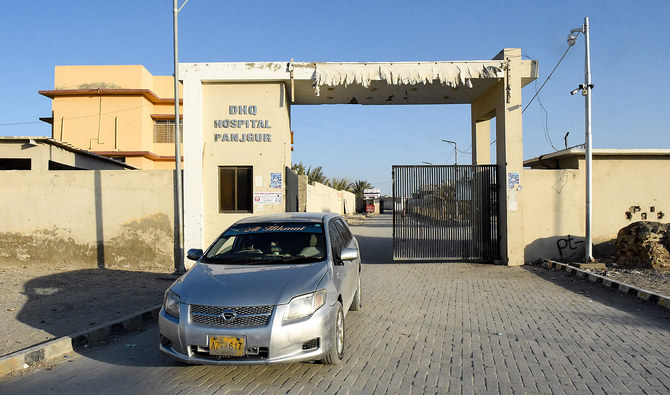ISLAMABAD: Pakistan’s former diplomats and security analysts on Wednesday urged the government to convene a meeting of the National Security Council (NSC), the country’s top security body, to formulate a course of action as tensions with Iran escalate after Tehran conducted a drone attack on alleged militant bases in Pakistan this week.
The demand came a day after Pakistan said Iran violated its airspace and attacked a border village on Tuesday evening, killing two children and injuring three women.
Reports about it were first emerged in the Iranian media, with Nournews, affiliated with the country’s top security body, saying Iran had attacked militant bases in Pakistan’s southwestern Balochistan province. The target of the attack was allegedly the Jaish Al-Adl militant group that Iran accuses of attacks on its forces in the border area with Pakistan.
Islamabad reacted sharply to the development, recalling its ambassador from Iran and barring the Iranian diplomat from returning to Pakistan. The South Asian country also suspended all high-level visits it had scheduled with Iranian officials in the coming days.
“Pakistan reserves the right to respond, necessitating a prompt National Security Council meeting where the Prime Minister should consider various options, with the military option as a last resort,” Brig. (retired) Ahmed Saeed Minhas, a defense analyst, told Arab News.
The NSC, chaired by Pakistan’s prime minister, is a government body comprising the country’s top civil and military officials. It takes important decisions related to Pakistan’s national security.
Minhas said Iran’s airstrikes were “utterly unbelievable,” adding Pakistan had signed a peace and security accord with Iran in 2013-14. Both nations agreed to share intelligence for joint operations against elements plotting militant attacks against their respective countries, he said.
“The initial response is in place, but Iran must apologize internationally for their actions,” Minhas said. “Otherwise, Pakistan has all options available.”
Former Pakistani diplomat Javed Hafeez endorsed Minhas’ opinion, saying that an NSC meeting should thoroughly analyze the prevailing security situation.
“As a way forward, there should be a hotline between the two interior secretaries, and both countries should promote joint border patrols to eliminate the threat of terrorism,” Hafeez told Arab News.
The ex-diplomat said it was unfortunate Pakistan had canceled high-level visits with Iran following the incident, noting it would hamper efforts by both countries to increase bilateral trade and religious tourism.
“Thousands of Pakistani pilgrims visit Iran every year and this incident will impact their plans as well,” Hafeez observed.
Pakistan’s political leadership vehemently condemned the Iranian strike, with former prime minister Shehbaz Sharif saying the attack was against the “spirit of bilateral friendship and principles of good neighborliness.”
“Sincere dialogue and meaningful cooperation between our two countries is the need of the hour,” Sharif wrote on social media platform X.
Ex-PM Imran Khan’s Pakistan Tehreek-e-Insaf (PTI) party said Iran’s irresponsible and reprehensible act would sabotage the possibilities of much-needed unity among the Muslim community.
“Party seeks an immediate explanation from the unconstitutional, illegal, unrepresentative and unelected government for its complete failure to safeguard the integrity, security, and defense of Pakistan,” the PTI said in a statement.
Syed Muhammad Ali, a national security expert, said Iranian aggression had caused a “deep scar” in the cordial bilateral relationship between the two neighbors.
“Pakistan reserves the right to respond to this unprovoked Iranian aggression at a time and in a manner of its own choice,” Ali told Arab News.
Dr. Salma Malik, assistant professor at the Department of Defense and Strategic Studies at Quaid-e-Azam University, appreciated Pakistani authorities for delivering a “measured” diplomatic response in the face of escalating tensions.
“Both countries should engage in dialogue to defuse the situation and ensure that it does not escalate further,” Malik told Arab News.











